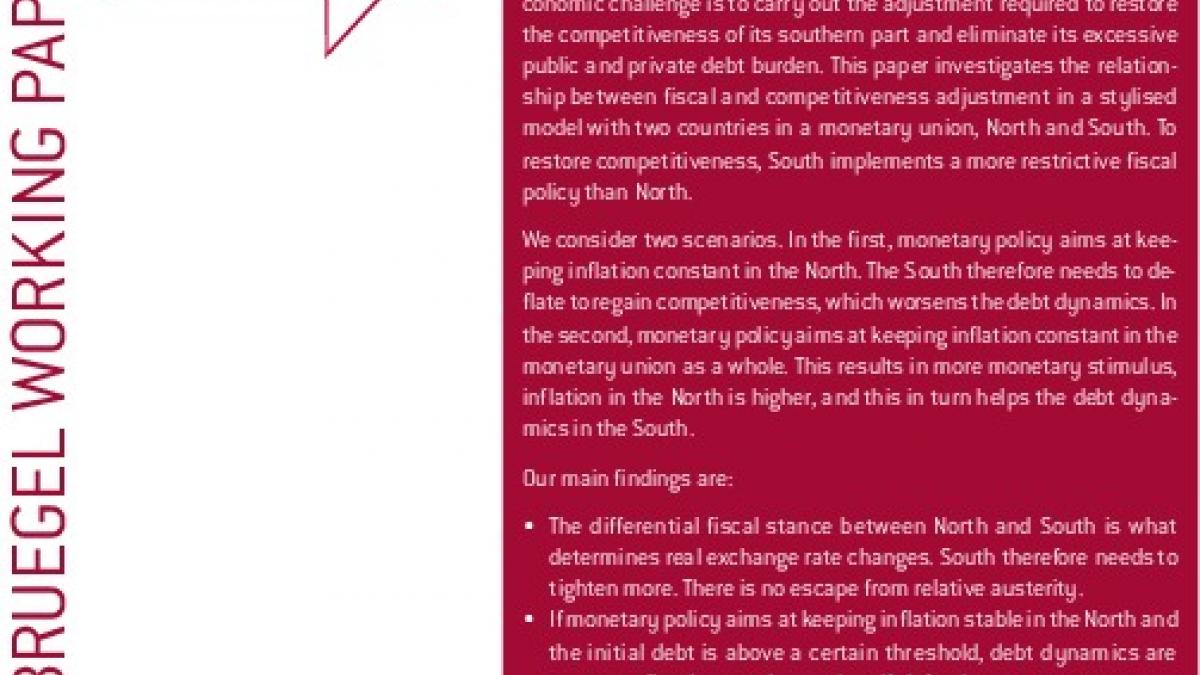The simple macroeconomics of North and South in EMU
The euro area today consists of a competitive, moderately leveraged North and an uncompetitive, over-indebted South. Its main macroeconomic challenge

The euro area today consists of a competitive, moderately leveraged North and an uncompetitive, over-indebted South. Its main macroeconomic challenge is to carry out the adjustment required to restore the competitiveness of its southern part and eliminate its excessive public and private debt burden. This paper investigates the relationship between fiscal and competitiveness adjustment in a stylised model with two countries in a monetary union, North and South. To restore competitiveness, South implements a more restrictive fiscal policy than North.
We consider two scenarios. In the first, monetary policy aims at keeping inflation constant in the North. The South therefore needs to deflate to regain competitiveness, which worsens the debt dynamics. In the second, monetary policy aims at keeping inflation constant in the monetary union as a whole. This results in more monetary stimulus, inflation in the North is higher, and this in turn helps the debt dynamics in the South.
Our main findings are:
- The differential fiscal stance between North and South is what determines real exchange rate changes. South therefore needs to tighten more. There is no escape from relative austerity.
- If monetary policy aims at keeping inflation stable in the North and the initial debt is above a certain threshold, debt dynamics are perverse: fiscal retrenchment is self-defeating;
- If monetary policy targets average inflation instead, which implies higher inflation in the North, the initial debt threshold above which the debt dynamics become perverse is higher. Accepting more inflation at home is therefore a way for the North to contribute to restoring debt sustainability in the South.
- Structural reforms in the South improve the debt dynamics if the initial debt is not too high. Again, targeting average inflation rather than inflation in the North helps strengthen the favourable effects of structural reforms.



